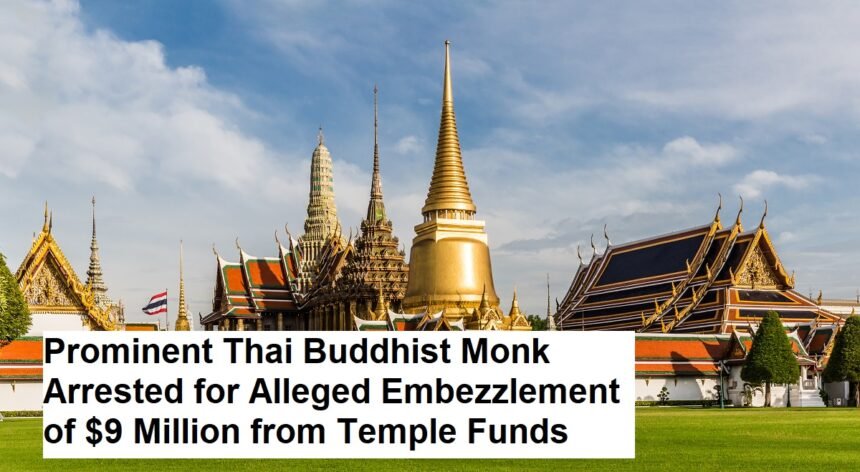On May 14, 2025, Thai authorities arrested Phra Thammachiranuwat, the abbot of Wat Rai Khing temple, following an investigation by the Central Investigation Bureau (CIB) into the alleged embezzlement of approximately $9 million in donations from temple devotees. This high-profile case has sent shockwaves through Thailand’s religious community and raised serious concerns about financial transparency and accountability within Buddhist institutions.
Wat Rai Khing, located in southern Thailand, is a well-known Buddhist temple that has long served as a spiritual center and a place of community support. The temple relies heavily on donations from its followers, who contribute funds for religious ceremonies, maintenance, and charitable activities. However, the CIB’s investigation uncovered significant irregularities in the temple’s financial records, pointing to unauthorized transfers and misappropriation of funds.
Phra Thammachiranuwat, a respected senior monk holding the title “Phra,” was accused of diverting donations into personal accounts and using the money for private expenses, including luxury purchases and real estate investments. The allegations suggest that the monk exploited his position of trust to manipulate devotees, many of whom are elderly or economically vulnerable, into contributing large sums under the pretext of religious merit and blessings.
The arrest of such a prominent religious figure is rare in Thailand, where Buddhist monks traditionally hold a revered status in society. This case has sparked widespread public outrage and debate about the governance and oversight of religious institutions. Critics argue that the lack of stringent financial controls and independent audits within temples creates opportunities for corruption and abuse of power.
In response to the scandal, the National Office of Buddhism, the government agency responsible for regulating temples, has pledged to implement reforms aimed at increasing transparency and accountability. Proposed measures include mandatory financial reporting, regular audits, and greater involvement of laypeople in temple management. The Supreme Sangha Council, the highest governing body of Thai Buddhism, condemned the alleged actions of Phra Thammachiranuwat, stating that his conduct betrayed the fundamental principles of Buddhist teachings.
Public reaction has been mixed, with many expressing shock and disappointment over the breach of trust by a religious leader. Others see the case as indicative of broader systemic issues within both religious and governmental institutions in Thailand. The scandal has also reignited calls for legal reforms to better regulate religious fundraising activities, which currently operate with limited oversight despite their significant economic impact.
As the legal proceedings against Phra Thammachiranuwat move forward, the case serves as a stark reminder of the complex relationship between faith, power, and accountability in modern Thai society. It highlights the urgent need for stronger safeguards to protect the integrity of religious institutions and ensure that donations intended for spiritual and charitable purposes are used appropriately.
In conclusion, the arrest of Phra Thammachiranuwat on charges of embezzling $9 million from temple funds has exposed vulnerabilities in the financial management of Thailand’s Buddhist temples. The scandal has prompted calls for reform and greater transparency, aiming to restore public confidence in religious institutions and uphold the ethical standards expected of spiritual leaders. As the investigation continues, the outcome will likely have significant implications for the future governance of religious organizations in Thailand.









